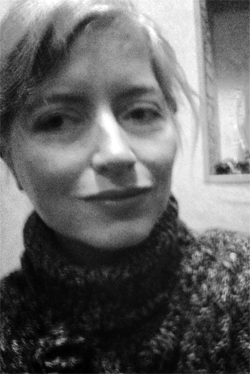

THIS IS NOW CLOSED. Cordite 48.0: CONSTRAINT is accepting submissions.
Poetry for Cordite 47: COLLABORATION is guest-edited by Helen Lambert (Moscow) and Louis Armand (Prague).
What kind of poems are we looking for?: Two (or more) people working together to create a poetic work (written, visual, audio, video, etc). This can be your collaboration with an extant person or group, or with ones that’ve long come and gone … thus, your collaboration may be ‘known’ (you producing with another living poet or active group) or ‘unbeknownst’ (a response to an artist or artwork, but not a corporation, of any medium in the present or past).
Our further thoughts: Collaboration is traditionally understood as ‘working-with’ another person or persons, which makes the possibility of attribution slippery and problematic—for who, might we ask, is really the author of the text, the one who signs their name to the work?
In this way, collaboration undermines the singularity of the author. But if this ‘working-with’ is not simply a case of working with another writer, it is because it can also be understood as working with language, with the history of poetry (allusion, intertextuality), with other genres (poetry and painting, music, photography, etc), or with other languages (poetry and translation).
Are we then not all, whether we like it or not, always already collaborators? But collaboration also implies actions that do not necessarily partake, at least by intention, in positive pluralism. For collaboration also implies an adversary and adversity. Where intersubjectivities rarely co-operate, poetry thrives.
Literary history abounds in such collaborative ambivalence; the Ern Malley “hoax” being a classic example. Here, two disgruntled anti-modernists produced, in the space of an afternoon, and by way of collage, a pastiche, a subterfuge, a mock collection of quintessentially “modernist” poems by a non-existent, dead, Australian poet. Their intention was to discredit Max Harris, local literary editor of Angry Penguins, and Modernism in general.
An alternative view contends that these two hoaxers, freed from the usual constraints of aesthetic judgments etc., and driven perhaps by their unconscious impulses, unwittingly produced works of poetic genius. Their “collaboration” sparked further collaboration; first with the wider literary cabal in which they were involved, then with Max Harris, the duped editor who published the poems and hailed them the work of a great Australian poet, then with an unbeknownst (and thereafter increasingly knowing) public … and then with a reactionary political-judicial system devoted to the cause of anti-obscenity (Max Harris was eventually prosecuted on that charge).
The Ern Malley poems, however, took on quite a life of their own, despite all efforts of their creators. In doing so, they initiated a series of important further collaborative processes, notable among them the artist Sidney Nolan’s ‘Ern Malley’ series and, more recently, a series of poetic cross-collaborations with the poets John Ashbery, John Kinsella and John Tranter (all poets known for their interest in collaborative practices). That the Ern Malley poems appear in full in the Penguin Book of Modern Australian Poetry has opened a whole new area of collaboration.
Please submit only once, with a maximum of three (3) poems in one document (1) … but first, please read the submission guidelines.
*Note: You may be collaborating with a living somebody unbeknownst to them, or somebody long gone. That’s okay. But you MUST demonstrate more than simply being INFLUENCED by _______________.
**Note: You’re also welcome / encouraged to include a brief paragraph with your poems to contextualise the ‘known’ or ‘unbeknownst’ collaboration.













